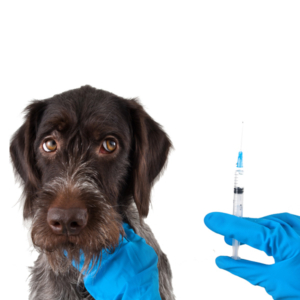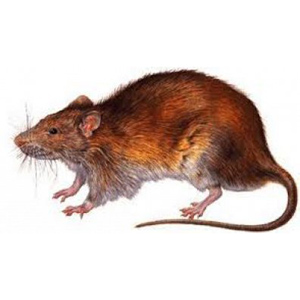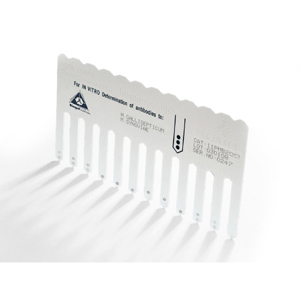Which Vaccinations Does My Dog Actually Receive?
– And are there alternatives?-
Every year we dutifully go to the vet for the annual vaccination(s). But what are those vaccinations actually for? Which vaccinations are administered? And do you have to vaccinate every year or are there alternatives? You may have heard about "Titering", but what exactly is titering?
Big Dog investigates…
After listing the different vaccinations, we will discuss the ' how, why and how often ' of the different vaccinations. We also tell you whether they are mandatory and whether they must be given annually or have a different term.
Please note: this information does not veterinary advice. If you have any doubts or need more information, always contact your vet.
Finally, we will discuss an alternative: Titering.
Written by
Isabel Koutzarov and Ingrid Smolders
Which vaccinations, why and how often?
There are basically 4 vaccinations that are administered to dogs:
- The “cocktail”.
- Weil's disease
- Kennel cough
- Rabies
Below we discuss these vaccinations in more detail.
1.The “cocktail”
“The Cocktail” vaccination protects your four-legged friend against 3 diseases. Titering is an alternative to this vaccine
The “Coctail” is a vaccination that protects your dog against 3 diseases:
- D: Distemper or distemper
- H: Hepatitis or infectious liver disease
- P: Parvo
These are also called the ''core diseases''. All three are highly contagious diseases, often with a fatal outcome. And your four-legged friend runs a real risk of contracting these diseases.
So, is the vaccination legally required? No. Necessary? Yes… but not always necessary ! Why? Read more!
“In the past” the cocktail was administered annually, but nowadays there is enough research that supports administering this vaccine every 3 years.
Instead of vaccinating against these diseases, titering is becoming increasingly accepted, also at kennels, shows and walking services. What is Titeren, read more about this later.
2.Weil's disease
Weil's disease is transmitted, among other things, by drinking from stagnant water.
Weil's disease is a bacterial disease caused by Leptospirosis with an often fatal outcome for the dog. The disease is spread, among other things, by (the urine of) rats and mice. Dogs can come into contact with the disease by swimming in stagnant water or drinking from a puddle.
It is not a legally required vaccination, but veterinarians often administer it as standard, probably because it is a zoonosis: transmissible to humans.
As an owner, you can therefore make a risk assessment whether you want to give this vaccination, for example (older) dogs that do not swim (anymore) or rarely drink from a puddle of water, are less at risk of contracting the disease and you could consider not (anymore) to vaccinate these dogs against Weil. Please note: always discuss this with your vet!
The Weil vaccination (also called L4) provides protection against 4 types of this bacterial family, the most common variants. Your dog is therefore not protected against all variants. Please note: if your dog is vaccinated against Weil with L4 for the first time, this vaccination must be repeated after 4 weeks (booster)*.
Although it is considered an annual vaccination, there is increasing evidence that the vaccine is effective for less than a year. Not all veterinarians support this, the choice is yours. You could opt to wait until early spring with the vaccination, as the bacteria are most prevalent at higher temperatures and dogs swim more at higher temperatures.
3.Kennel cough
Kennel cough can be compared to a flu strain
Kennel cough, contrary to what the name suggests, is not (only) contracted in kennels. Your four-legged friend can contract kennel cough anywhere, but if he is often in groups (kennels, courses, shows, walking service) the risk of contracting the disease is greater.
Kennel cough is generally not transmissible to humans and generally not life-threatening for dogs.
The vaccination is given annually and is usually administered through the nose. No, this does not mean that they stick a needle in the nose, it is just a nasal spray, so it is not painful.
But the vaccine, just like with Weil's disease, does not prevent your dog from becoming ill, but it can alleviate the symptoms. Veterinarian Tannetje Koning, known in the Netherlands, says that giving the vaccine against kennel cough has no added value, because the dog, with a mild cough, recovers on average after 2-4 weeks, depending on the immune system. Well-known vaccination scientist Dr. Ronald Schultz describes kennel cough as a “cold”.
This vaccination is therefore not legally required. That said, it may be required, for example in kennels, day care centers, dog walking services.
4.Rabies
Rabies is also called Rabies
Rabies is characterized by a change in the animal's behavior, and this behavior often manifests itself as aggression out of nowhere; hence the more familiar name ''rabies''. It spreads through saliva (biting) and it is a viral infection, also transmissible to humans, for example if a dog bites a human.
The progression of the disease is rapid, spreads through the nerve pathways and eventually affects the organs and causes death.
Fortunately, this disease has been eradicated (through vaccination) in the Netherlands and many other countries.
The Rabies vaccination is only mandatory if you take your four-legged friend with you on a trip abroad (even to Belgium or Germany). The vaccination must be given at least 3 weeks before the trip.
The vaccination is only given when the puppy is 12 weeks old. This is important to know if you adopt or 'take' a puppy from abroad. This means that the puppy cannot enter the country until 15 weeks of age. Unfortunately, this is often tampered with, and the puppies may be vaccinated earlier and presented as an older dog. So watch out for this, be alert.
At 12 weeks puppies get their last ''cocktail'', the next is at 1 year. The vet will probably also ask if you plan to go abroad because the Rabies vaccination is legally required. It protects the country you go to, but also the Netherlands when you return.
If you have no immediate plans to travel with your puppy at that time, we recommend that you administer this vaccination later if possible. This way, your puppy's body does not have to process a whole battery of vaccinations at 12 weeks (cocktail and kennel cough & Weil if you choose).
An overview
| Vaccination | Annual | Every 3 years | Alternative |
| 1. Cocktail | Puppies: 6,9,12 weeks + at 1 year. Not mandatory, necessary, but not always necessary. see alternative | Advice: every 3 years | Titering |
| 2. Weil's disease | Make a risk assessment with your vet
When to vaccinate: preferably in early spring. Not legally required. It can be transferred to humans. Make a risk assessment with your vet |
||
| 3. Kennel cough | Make a risk assessment with your vet. Not legally required, sometimes required for kennels/walking services, etc. | ||
| 4. Rabies | Legally required if you come to or from abroad. Vaccination must be given at least 3 weeks in advance.
Puppies: consider whether this is necessary immediately with the 1st year vaccination . |
Titering: The Alternative to ''the Cocktail”
Alternative to “the Cocktail”? Glass of wine?
Do you remember the first vaccination we wrote about in this piece, the Cocktail? It is a vaccine that protects your dog against the 3 core diseases.
- D: Distemper or distemper
- H: Hepatitis or infectious liver disease
- P: Parvo
After vaccination with ''the Cocktail'', the immune system starts producing antibodies If your dog comes into contact with one of the pathogens against which it has been vaccinated, it will be the antibodies that neutralize the disease so that your dog does not become ill.
But there is an alternative to this vaccination: Titering
What is Titering?
Titering is a method of measuring the number of antibodies and based on this it is possible to determine whether your dog is protected against Parvo, Distemper and liver disease. This may mean that your dog does not need to be (unnecessarily) vaccinated.
Titering is carried out by your vet: a few drops of blood are taken, and then the number of antibodies is measured with a rapid test called Vaccicheck. If sufficient antibodies are present, the administration of “the Cocktail” can be postponed for up to 3 years. And…the good news is that you can titrate again after that period!
There is evidence that some dogs do not produce enough antibodies after vaccination. Another advantage of titering can be that it provides insight into whether the vaccine has done its job and whether your dog is indeed protected.
Titering is starting to gain more and more of a foothold in the Netherlands: more and more boarding houses, walking services and dog shows accept that dogs are titered instead of vaccinated.
The cost of titering is approximately €45-€50.
Do you have any questions? Contact your vet or us.








